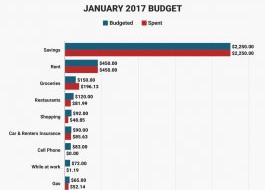 Spark great conversations.University of Exeter/Flickr
Spark great conversations.University of Exeter/Flickr
Specifically, stealing an idea I found in a book and sharing it with a fellow guest. I love the "No way!" and "So cool!" I get when I talk about a weird fact or a new psychological finding I've just learned.
The truth is, you can find these fascinating tidbits in pretty much any book you pick up. But the nine books Business Insider has listed below are just brimming with shareable insights.
Here's a brief synopsis of each one, and how it'll help you spark great conversations.
'Better Than Before' by Gretchen Rubin

Rubin is the bestselling author of multiple books about happiness and habits; her most well-known is her 2012 book, "The Happiness Project."
In "Better Than Before," published in 2015, Rubin helps readers figure out their "Tendency" — a.k.a. their typical approach to habits. Everyone, she says, falls into one of four categories: Upholder, Questioner, Obliger, or Rebel.
Rubin also offers 21 strategies for developing better habits, each one tailored to different personality types.
Find it here »
'Smarter Faster Better' by Charles Duhigg

This 2016 book is the second bestseller Duhigg has published; the first was "The Power of Habit" in 2012.
Duhigg, a New York Times journalist, explores the science of productivity from different angles: how to make an optimal to-do list, how Disney created the mega-hit "Frozen"; and what makes Google teams effective.
The book is full of eye-opening stories that Duhigg dug up in his research, like how an airplane pilot prevented the plane from crashing by creating a "mental model."
Find it here »
'Unfinished Business' by Anne-Marie Slaughter

This book stemmed from a viral Atlantic article titled, "Why Women Still Can't Have it All," which Slaughter published in 2012.
Slaughter was the dean of Princeton’s Woodrow Wilson School of Public and International Affairs; she subsequently served as the first female director of policy planning in the US State Department, under Secretary of State Hillary Clinton.
After two years in Washington, Slaughter returned to an academic career at Princeton University, feeling that her family needed her at home. The experience sparked her article in The Atlantic.
In the book, published in 2015, Slaughter argues that we undervalue certain contributions to society — like parenting and caregiving in general — and challenges conventional notions about what work and gender equality really mean. Her arguments are supported by research as well as personal anecdotes.
Find it here »
'The Power of Meaning' by Emily Esfahani Smith

"The Power of Meaning" is a fleshed-out version of another viral Atlantic article, this one published by Esfahani Smith in 2013, titled, "There's More to Life Than Being Happy."
In the article, she explored research suggesting that meaning and happiness are two distinct phenomena — and that meaning might be the path to a more fulfilling life. The book draws on fields such as religion, philosophy, and psychology to support the idea that constantly chasing happiness isn't necessarily the optimal route to happiness.
If you think your conversation partner might be up for some more existential meanderings, consider discussing some of the research Esfahani Smith cites in her book.
For example, while parenting doesn't always make people happy, it almost always adds meaning to people's lives. And while thinking about how your life could have turned out differently isn't necessarily the most pleasant experience, it can make you appreciate the significance of past events.
Find it here »
'Peak' by Anders Ericsson and Robert Pool

The topic that Ericsson and Pool explore in "Peak" — how to become an expert at anything, from chess to golf to writing — is hugely controversial within the scientific community.
Ericsson, a psychologist at Florida State University, draws on years of scientific research to argue that it's about "deliberate practice," a strategy that involves setting concrete goals and constantly pushing yourself beyond your comfort zone.
Other psychologists have found that deliberate practice does not, in fact, account for all the differences between experts and less adept performers. They say inherent ability might play some role as well.
Find it here »
'The Immortal Life of Henrietta Lacks' by Rebecca Skloot

Yes, the film adaptation of this book just came out. But why not read the book as well, so you get a richer picture of the impact that Lacks made on the scientific community (and have more to talk about)?
Lacks was a poor African-American woman who died in 1951, at age 30, from cervical cancer. Unbeknownst to her or her family, scientists took some of her cancer cells, which could reproduce outside her body, and have been using them for research ever since.
Journalist Rebecca Skloot gets in touch with the Lacks family and forges a relationship with one of Henrietta's daughters, helping her learn about the research that her mother's cells had been used for.
The book explores some complex, intersecting topics, from racial politics to ethics in science. You and your conversation partner could probably spend hours discussing this once-little-known story — and its lasting significance.
Find it here »
'Quiet' by Susan Cain

After Cain published her bestselling book "Quiet" in 2012, she sparked a national conversation about what it means to be an introvert — and how American society tends to undervalue the contributions introverts can make.
Today, Cain, who is a self-proclaimed introvert, runs an organization called "Quiet Revolution," which offers business, parents, and educators information about how to help introverts succeed.
Through research and anecdotal evidence, "Quiet" challenges common misconceptions about introverts and what they can achieve at work and in their personal lives. She suggests, for example, that introverts can be just as — if not more — effective in leadership positions than extroverts.
Find it here »
'Stiff' by Mary Roach

You don't have to be a science nerd to be into Mary Roach, the author of multiple books about topics including digestion, sex, and war.
In "Stiff," published in 2003, Roach tackles the topic of cadavers — yes, cadavers. She explores all the ways dead bodies have been used throughout history, like testing new forms of surgery. It's a funny, easy-to-read take on a topic that most people probably don't give much thought to.
Don't be afraid to gross out your audience. A Business Insider staffer says she's shared tidbits from this book at many a party (and it's gone over well).
Find it here »
'Predictably Irrational' by Dan Ariely

Ariely, a professor at Duke University, is one of the world's leading behavioral economists. He's published multiple books in which he makes psychological research accessible and exciting.
"Predictably Irrational," published in 2009, gives readers a glimpse into the weirdness of human behavior. Here's one of the most thought-provoking examples: We consider an item's relative price when figuring out how much it's worth.
Ariely came across an old Economist ad featuring three subscription levels: $59 for online only, $159 for print only, and $159 for online and print. He figured out that the option to pay $159 for print only existed so that it made the option to pay $159 for online and print look more enticing than it would if it was just paired with the $59 option.
Pull out any one of the findings Ariely discusses in "Predictably Irrational" and you'll buy yourself at least 10 minutes of conversation — plus you'll seem super smart.




